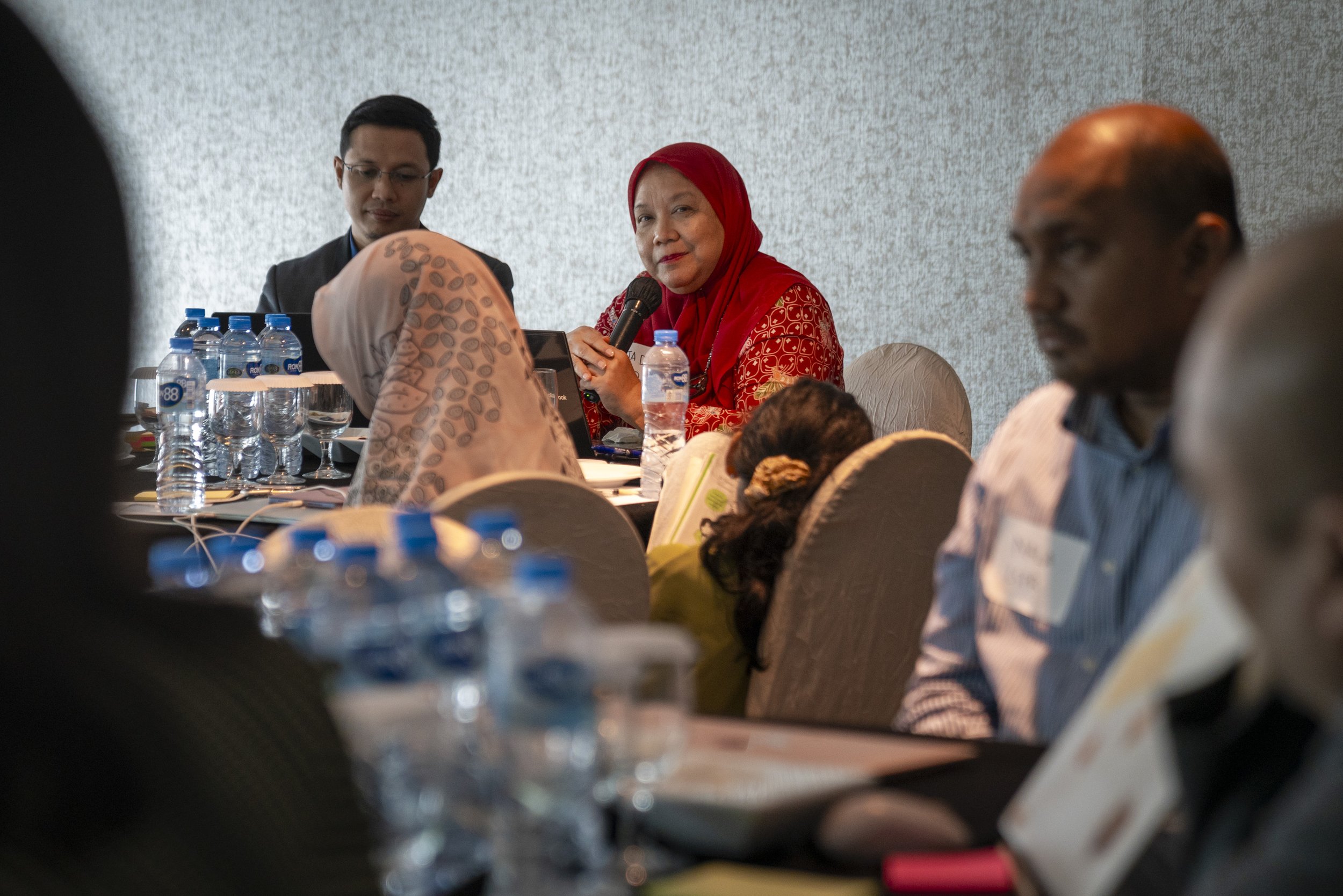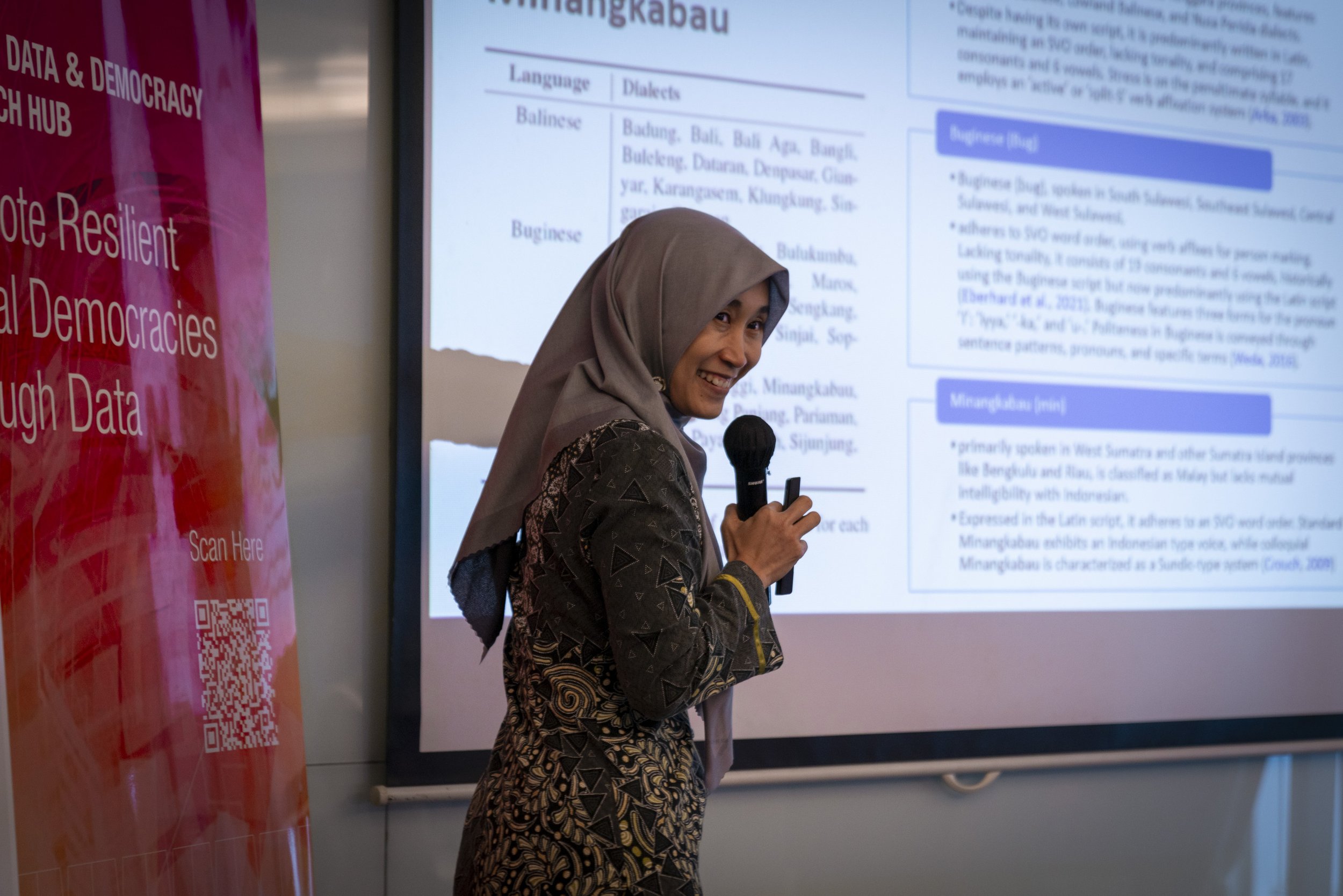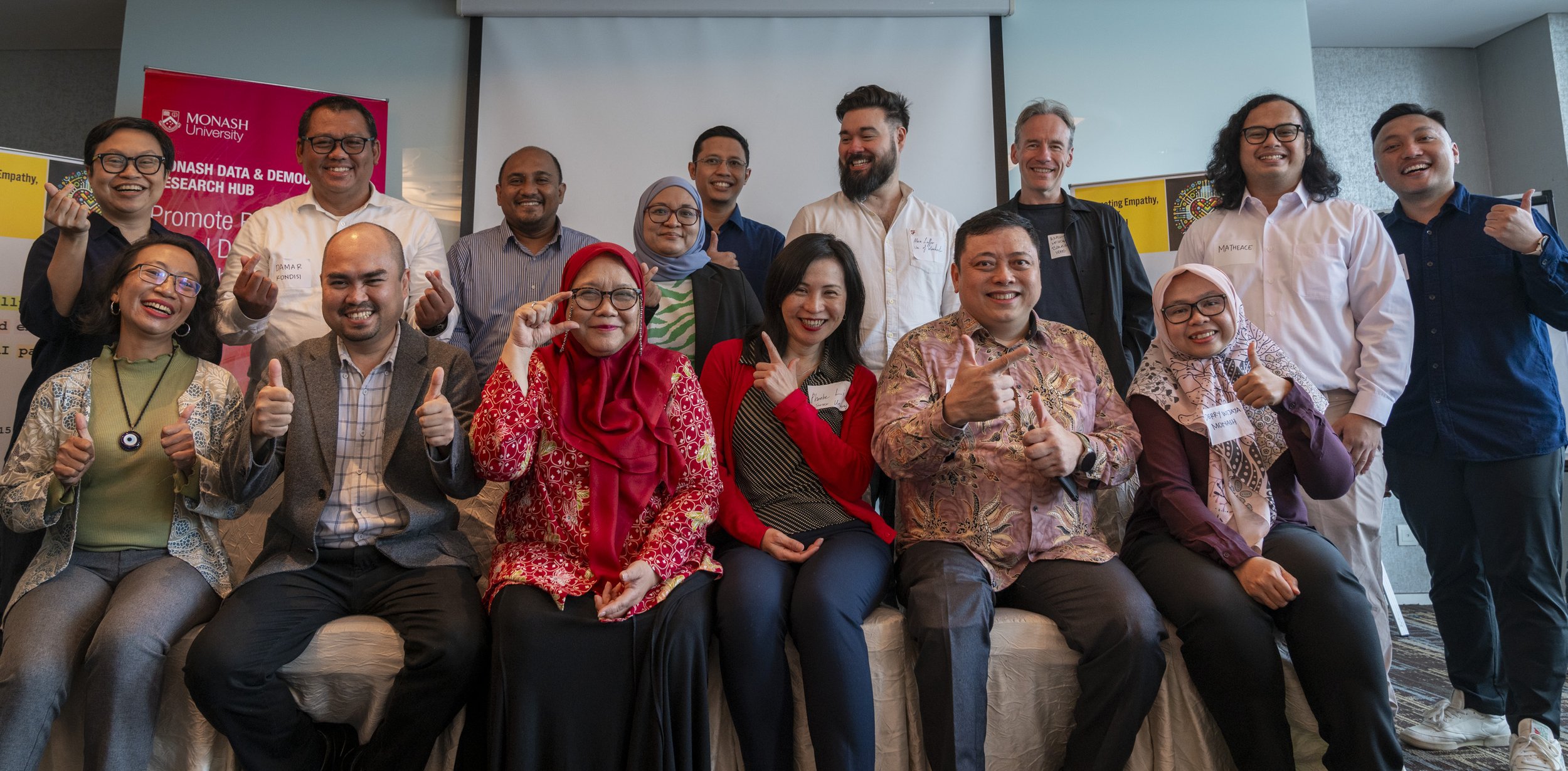AI Localisation and Extreme Diversity: Insights from AEGIS Workshop, Jakarta, Jan 2025
Exploring Indonesian perspectives on automated empathy in Jakarta, Java, Indonesia
Indonesia is a world within a country! “One of the most diverse countries in the world”, it is an enormous source of both opportunity and complexity. The AEGIS team is in Jakarta, capital of Indonesia, to hear about this country’s extraordinary position in the emerging paradigm of human-AI partnering and automated empathy.
Watch the videos
Watch some highlights from the AEGIS workshop in downtown Jakarta.
A brief highlight from our interview with Arif Perdana from Monash University, Indonesia. Arif talks about the uniqueness of Indonesian culture in the context of AI partnerships.
Workshop context
The workshop was a collaboration with Action Lab Indonesia and the Data and Democracy Research Hub at Monash University, Indonesia, led by Arif Perdana, and held at the JS Luwansa Hotel and Convention Center in downtown Jakarta. It was attended by 22 people, bringing expertise from academia, tech industry, government, journalism and civil society organisations. The theme was “to explore ethics of emulated empathy in human-AI partnerships”, particularly examining how the forthcoming IEEE 7014.1 recommended practice could be informed by Indonesian perspectives.
Hearing participant input on the workshop issues
Besides the AEGIS team, we were treated to rich presentations from:
Ayu Purwarianti, from Institut Teknologi Bandung (on Technical challenges in developing culturally aware empathic systems).
Sinta Dewi, from Universitas Padjadjaran, Dr. Ir. Lukas, from Unika Atma Jaya, NLP Communities/AI Society, and Fahrizal Lukman Budiono, from Ministry of Communication & Digital Affairs (Komdigi) (on The balance between innovation and regulation in empathic AI).
Derry Wijaya, from Monash University, Indonesia (on Cross-cultural challenges in interpreting and responding to emotions)
Irvan Bastian Arief, from tiket.com, and Harun Mahbub Billah, from Liputan6.com (on Future trends and potential developments in commercial emotive).
We were treated to excellent speakers
Workshop insights
The top line: Indonesia demands hyperlocalised AI
While being a single country of 280 million people, Indonesia is strewn across 17,500 islands in a chain stretching over 5,000 kilometres. Over 600 ethnic groups call Indonesia home, conversing in over 700 languages, plus many more dialects. While Islam is the leading religion, it is one of six officially recognised religions, alongside hundreds of indigenous spiritualities. This is a country as diverse as a continent. Cultural perspectives and norms, and their consequent sensitivities, vary dramatically across several vectors relating to issues such as faith, social hierarchy and gender identity. Indonesia is, in a word, diverse.
For any technology as customisable and personalisable as AI, such a sweeping mix of cultures is a major challenge. Regulation and design could restrict AI from offending some sensitivities, as is already the case (e.g. cursing, hate speech) but at what point do such limitations impede reasonable access and functionality? The alternative route is one of variation and adaptation to accommodate the needs of different groups and individuals, or by use case (e.g. medical, education) but this would require sufficient customisation of model training, user access and other features. This would not be simple, especially with the leading AIs already being trained largely on western data, with poor representation of eastern nuance, let alone small cultural groups with low digital access or literacy.
Our Indonesian participants described their fellow nationals as exceptionally keen to innovate, and to adopt new tools and practices. With usage of AI companions and ghostbots being relatively high, “We love technology,” one said. “We embrace it. But we are not cautious.” Overconfidence is apparent in a global survey, the IPSOS AI Monitor 2024, which reported that Indonesians topped the world in their confidence of a “good understanding of what artificial intelligence is” while simultaneously ranking near the top for trusting that “companies that use artificial intelligence will protect my personal data” and further trusting “artificial intelligence to not discriminate or show bias towards any group of people”. Our expert participants painted a picture of Indonesia as early adopters, wired for change, yet vulnerable to misaligned influences from powerful new technologies.
General Insights
Digital and AI literacy is generally low, despite the enthusiastic adoption of new technologies mentioned above. This literacy issue may extend to tech policymakers as well.
Anthropomorphism was raised frequently in our conversations in connection to eastern animism as well as the above-mentioned potential for vulnerability to emotional manipulation as AI becomes more empathic. Opportunity should come from sensitisation to values-based design, where subjectivity is present in objects.
The old trade-off between regulation and innovation deserves particular attention in the Indonesian context. Questions were raised of strong versus weak regulation, to facilitate the exceptional growth that is desired in the country while doing so safely and sustainably (not unlike UK plans for economic and AI growth).
– Note: For more on Indonesia’s national tech objectives, see Visi Indonesia Digital 2045.Indonesia has a precedent of adopting international policies when they are suitable, rather than trying to write new content. For instance, GDPR has greatly influenced Indonesia’s Personal Data Protection Bill (2022). So for AI, there is likely a readiness to onboard good policy and standards from outside the country (if available), with IEEE P7014.1 receiving explicit mention.
Just a few days ago, Indonesia joined the BRICS countries as a full member. This raises questions of how the country will adopt and develop tech policy, innovation and entrepreneurship.
Presentation content ranged between technical and social
The bottom line: what should be done?
These workshop insights point to an urgent need for both technology regulators and producers to accommodate the nuanced needs of cultural and regional groups that exist across this sprawling archipelago. How can the global community help to enable this? It seems to follow that we should support decentralisation of AI development , with deep configuration to local contexts, while minimising intrusive personalisation methods. This is easier said than done, but the tenacity is present in Indonesia.
Increasingly intimate and potent human-machine partnerships are encountering an Indonesia full of energy and dynamism, keen for innovation, open to change, but rife with the complexities that come from serving such a diverse population.
Most of the participants with the AEGIS team




